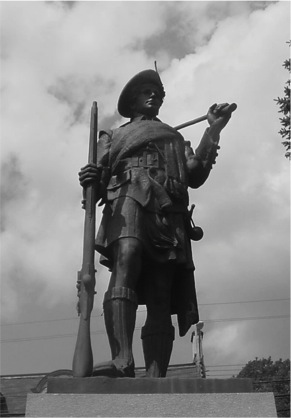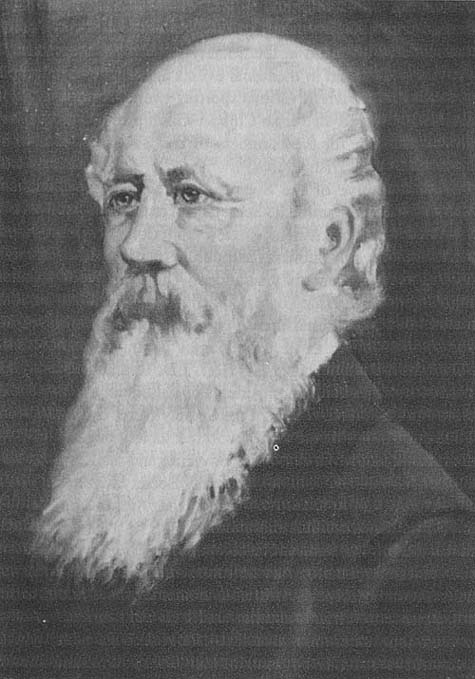|
Smith McKay
Smith McKay (1817 – December 8, 1889) was a prospector, merchant and political figure in Colony of Newfoundland, Newfoundland. He represented Twillingate-Fogo in the Newfoundland and Labrador House of Assembly from 1869 to 1874 and from 1882 to 1889. He was born in Pictou, Nova Scotia and came to Newfoundland in 1844, becoming a partner in a fishery supply and export business. McKay also was captain of a sealing ship and commanded a schooner which brought back oil from humpback whales. He was a partner in the Union Copper Mine, the first significant mining operation in the colony, with Charles James Fox Bennett. McKay was manager for the mine and also was involved in other mining ventures. In 1869, he married Susan Lock. He served as chairman of the Board of Works from 1883 to 1889. McKay died in office in St. John's, Newfoundland and Labrador, St. John's in 1889. References * External links * Members of the Newfoundland and Labrador House of Assembly Canadian ... [...More Info...] [...Related Items...] OR: [Wikipedia] [Google] [Baidu] |
Colony Of Newfoundland
Newfoundland Colony was an English and, later, British colony established in 1610 on the island of Newfoundland off the Atlantic coast of Canada, in what is now the province of Newfoundland and Labrador. That followed decades of sporadic English settlement on the island, which was at first seasonal, rather than permanent. It was made a Crown colony in 1824 and a Dominion in 1907. Its economy collapsed during the Great Depression of the 1930s, and Newfoundland relinquished its dominion status, effectively becoming once again a colony governed by appointees from the Colonial Office in Whitehall in London. In 1949, the colony voted to join Canada as the Province of Newfoundland. History Indigenous people like the Beothuk (known as the ''Skræling'' in Greenlandic Norse), and Innu were the first inhabitants of Newfoundland and Labrador. During the late 15th century, European explorers like João Fernandes Lavrador, Gaspar Corte-Real, John Cabot, Jacques Cartier and others b ... [...More Info...] [...Related Items...] OR: [Wikipedia] [Google] [Baidu] |
Newfoundland And Labrador House Of Assembly
The Newfoundland and Labrador House of Assembly is the Unicameralism, unicameral deliberative assembly of the General Assembly of Newfoundland and Labrador of the province of Newfoundland and Labrador, Canada. It meets in the Confederation Building (Newfoundland and Labrador), Confederation Building in St. John's, Newfoundland and Labrador, St. John's. Bills passed by the assembly are given royal assent by the Monarchy in Newfoundland and Labrador, King of Canada in Right of Newfoundland and Labrador, represented by the Lieutenant Governor of Newfoundland and Labrador. The governing party sits on the left side of the speaker of the House of Assembly as opposed to the traditional right side of the speaker. This tradition dates back to the 1850s as the heaters in the Colonial Building were located on the left side. Thus, the government chose to sit near the heat, and leave the opposition sitting in the cold. Homes of Legislature Before 1850 the legislature has sat at various loca ... [...More Info...] [...Related Items...] OR: [Wikipedia] [Google] [Baidu] |
Pictou, Nova Scotia
Pictou ( ; Canadian Gaelic: ''Baile Phiogto'') is a town in Pictou County, in the Canadian province of Nova Scotia. Located on the north shore of Pictou Harbour, the town is approximately 10 km (6 miles) north of the larger town of New Glasgow. Once an active shipping port and the shire town of the county, today Pictou is primarily a local service centre for surrounding rural communities and the primary tourist destination in this region of Nova Scotia. The name Pictou derives from the Mi'kmaq name , meaning "explosive place", a reference to the river of pitch that was found in the area, or perhaps from methane bubbling up from coal seams below the harbour. History Pictou Town had been the location of an annual Mi'kmaq summer coastal community prior to European settlement. Pictou was part of the Epekwitk aq Piktuk Mi'kmaq District, which included present-day Prince Edward Island and Pictou. Pictou Town was a receiving point for many Scottish immigrants moving to a new hom ... [...More Info...] [...Related Items...] OR: [Wikipedia] [Google] [Baidu] |
Humpback Whale
The humpback whale (''Megaptera novaeangliae'') is a species of baleen whale. It is a rorqual (a member of the family Balaenopteridae) and is the only species in the genus ''Megaptera''. Adults range in length from and weigh up to . The humpback has a distinctive body shape, with long pectoral fins and tubercles on its head. It is known for breaching and other distinctive surface behaviors, making it popular with whale watchers. Males produce a complex song typically lasting 4 to 33 minutes. Found in oceans and seas around the world, humpback whales typically migrate up to each year. They feed in polar waters and migrate to tropical or subtropical waters to breed and give birth. Their diet consists mostly of krill and small fish, and they use bubbles to catch prey. They are promiscuous breeders, with both sexes having multiple partners. Orcas are the main natural predators of humpback whales. Like other large whales, the humpback was a target for the whaling industry. ... [...More Info...] [...Related Items...] OR: [Wikipedia] [Google] [Baidu] |
Charles James Fox Bennett
Charles James Fox Bennett (11 June 1793 in Shaftesbury, England – 5 December 1883) was a merchant and politician who successfully fought attempts to take Newfoundland into Canadian confederation. Bennett was a successful businessman and one of the colony's richest residents with interests in the fisheries, distillery and brewery industry and shipbuilding. His brother Thomas Bennett, a magistrate and member of Newfoundland's first House of Assembly, was a partner in the business. Bennett became involved in politics in the 1840s as a leader of the colony's Anglican community and an opponent of responsible government, an argument he lost when an alliance of Catholics and non-Anglican Protestants persuaded the Colonial Office to grant Newfoundland self-government. In the 1860s, he led the Anti-Confederation Party opposing the proposals by Sir Frederick Carter to join Canada. Bennett's party defeated Carter's Conservatives on the Confederation issue in the 1869 elections, all ... [...More Info...] [...Related Items...] OR: [Wikipedia] [Google] [Baidu] |
Dictionary Of Canadian Biography Online
The ''Dictionary of Canadian Biography'' (''DCB''; french: Dictionnaire biographique du Canada) is a dictionary of biographical entries for individuals who have contributed to the history of Canada. The ''DCB'', which was initiated in 1959, is a collaboration between the University of Toronto and Laval University. Fifteen volumes have so far been published with more than 8,400 biographies of individuals who died or whose last known activity fell between the years 1000 and 1930. The entire print edition is online, along with some additional biographies to the year 2000. Establishment of the project The project was undertaken following a bequest to the University of Toronto from businessman, James Nicholson for the establishment of a Canadian version of the United Kingdom's '' Dictionary of National Biography''. In the spring of 1959, George Williams Brown was appointed general editor and the University of Toronto Press, which had been named publisher, sent out some 10,000 annou ... [...More Info...] [...Related Items...] OR: [Wikipedia] [Google] [Baidu] |
Members Of The Newfoundland And Labrador House Of Assembly
Member may refer to: * Military jury, referred to as "Members" in military jargon * Element (mathematics), an object that belongs to a mathematical set * In object-oriented programming, a member of a class ** Field (computer science), entries in a database ** Member variable, a variable that is associated with a specific object * Limb (anatomy), an appendage of the human or animal body ** Euphemism for penis * Structural component of a truss, connected by nodes * User (computing), a person making use of a computing service, especially on the Internet * Member (geology), a component of a geological formation * Member of parliament * The Members, a British punk rock band * Meronymy, a semantic relationship in linguistics * Church membership, belonging to a local Christian congregation, a Christian denomination and the universal Church * Member, a participant in a club or learned society A learned society (; also learned academy, scholarly society, or academic association) is an ... [...More Info...] [...Related Items...] OR: [Wikipedia] [Google] [Baidu] |
Canadian Miners
Canadians (french: Canadiens) are people identified with the country of Canada. This connection may be residential, legal, historical or cultural. For most Canadians, many (or all) of these connections exist and are collectively the source of their being ''Canadian''. Canada is a multilingual and multicultural society home to people of groups of many different ethnic, religious, and national origins, with the majority of the population made up of Old World immigrants and their descendants. Following the initial period of French and then the much larger British colonization, different waves (or peaks) of immigration and settlement of non-indigenous peoples took place over the course of nearly two centuries and continue today. Elements of Indigenous, French, British, and more recent immigrant customs, languages, and religions have combined to form the culture of Canada, and thus a Canadian identity. Canada has also been strongly influenced by its linguistic, geographic, and ec ... [...More Info...] [...Related Items...] OR: [Wikipedia] [Google] [Baidu] |
1817 Births
Events January–March * January 1 – Sailing through the Sandwich Islands, Otto von Kotzebue discovers New Year Island. * January 19 – An army of 5,423 soldiers, led by General José de San Martín, starts crossing the Andes from Argentina, to liberate Chile and then Peru. * January 20 – Ram Mohan Roy and David Hare found Hindu College, Calcutta, offering instructions in Western languages and subjects. * February 12 – Battle of Chacabuco: The Argentine–Chilean patriotic army defeats the Spanish. * March 3 ** President James Madison vetoes John C. Calhoun's Bonus Bill. ** The U.S. Congress passes a law to split the Mississippi Territory, after Mississippi drafts a constitution, creating the Alabama Territory, effective in August. * March 4 – James Monroe is sworn in as the fifth President of the United States. * March 21 – The flag of the Pernambucan Revolt is publicly blessed by the dean of Recife Cathedral, Brazil ... [...More Info...] [...Related Items...] OR: [Wikipedia] [Google] [Baidu] |
1889 Deaths
Events January–March * January 1 ** The total solar eclipse of January 1, 1889 is seen over parts of California and Nevada. ** Paiute spiritual leader Wovoka experiences a vision, leading to the start of the Ghost Dance movement in the Dakotas. * January 4 – An Act to Regulate Appointments in the Marine Hospital Service of the United States is signed by President Grover Cleveland. It establishes a Commissioned Corps of officers, as a predecessor to the modern-day U.S. Public Health Service Commissioned Corps. * January 5 – Preston North End F.C. is declared the winner of the The Football League 1888–89, inaugural Football League in England. * January 8 – Herman Hollerith receives a patent for his electric tabulating machine in the United States. * January 15 – The Coca-Cola Company is originally Incorporation (business), incorporated as the Pemberton Medicine Company in Atlanta, Georgia (U.S. state), Georgia. * January 22 – Columbia Phonograph is formed in Wa ... [...More Info...] [...Related Items...] OR: [Wikipedia] [Google] [Baidu] |





